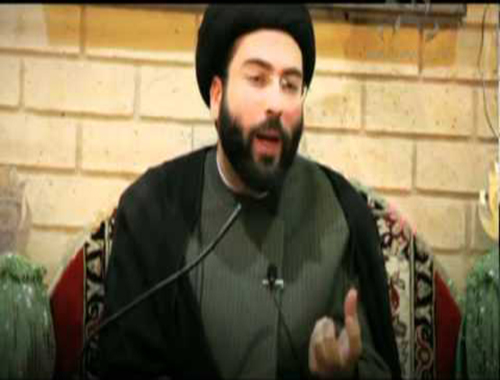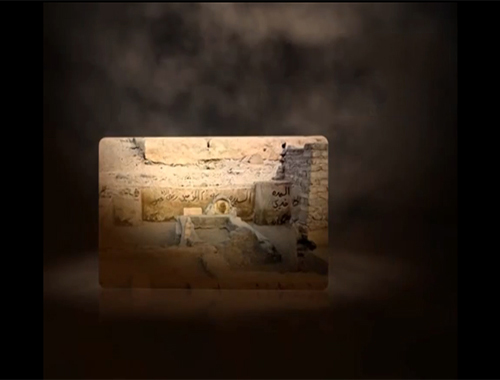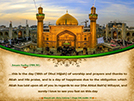Dissimulation (taqiyyah)
- Details
- Hits: 4696
Chapter 10
Dissimulation (taqiyyah)
--------------------------------------------------------------------------------
Taqiyyah, or the practice of hiding one's belief under duress, is mentioned in the Holy Qur'an in three places:
"Let not the believers take the disbelievers as guardians instead of the believers, and whoever does that will never be helped by Allah in any way, unless you indeed fear a danger from them (illa an tattaqu minhum tuqat)."[122]
"Whoever disbelieved in Allah after his belief - except him who is forced thereto and whose heart is at rest with faith."[123]
"And a believing man of Pharaoh's family who hid his faith...."[124]
These three verses clearly point to the permissibility of concealing one's ideology and opinion whenever in danger. Those living in countries with zero tolerance for the followers of the ahl al-bayt; where democracy is absent and tyranny, oppression, and abuse of human rights are rampant; and people are subjected to persecution, torture, and killing on account of their beliefs should, according to the Qur'anic teachings, practice taqiyyah to conceal their lives, wealth, properties, families, and friends. Taqiyyah should only be practiced whenever there is fear of danger or harm. If there is no fear of danger or harm, such as for the Muslims in the United States of America and Europe, then taqiyyah should not be practiced. Verse 16:106 in particular illustrates this point, as it was revealed to allow some of the companions of the Holy Prophet (pbuh&hf) in Makkah to express disbelief with their tongues and hide their true faith in their hearts when they were being tortured by Abu Sufyan. Even the most prominent companion of the Holy Prophet (pbuh&hf), 'Ammar ibn Yassir, declared disbelief when the infidels were torturing him in Makkah. People came to the Holy Prophet (pbuh&hf) and complained that 'Ammar had become a disbeliever, a kafir. The Holy Prophet (pbuh&hf) replied: "No, indeed 'Ammar is full of faith (iman) from head to toe," and he told 'Ammar that if the disbelievers were to torture him again, he should again deny his faith in public. This story is also mentioned in explanation of 16:106.
The first person in Islam to practice taqiyyah was the Messenger of Allah (pbuh&hf) himself when he concealed his mission in the beginning of Islam. For three years[125], his mission was very secret, and, in order to protect the message and the ideas he was carrying, he did not reveal them to the Quraysh until Allah commanded him to speak openly: "Therefore, proclaim openly the message of Allah - that which you are commanded - and turn away from the idolaters." [126] Then the Holy Prophet (pbuh&hf) began openly inviting people to Islam after this period of taqiyyah. Moreover, history shows that many prominent leaders of schools of thought from various traditions practiced taqiyyah on different occasions, such as Imam Abu Hanifah, when he gave verdicts to abandon prayers and break fast during the month of Ramadan for the person who is being coerced. Similarly, Imam Malik was obliged to use high levels of diplomacy with the Umayyid and 'Abbasid dynasties, using verse 3:28 as justification. Imam Shafi'i also used taqiyyah in his verdict regarding a man who swore falsely by the name of Allah under coercion that he would not pay the kaffarah. [127] Imam al-Ghazzali narrates that protecting the Muslim blood is obligatory, and lying is obligatory to prevent shedding the blood of a Muslim.[128]
Some people associate taqiyyah with nifaq (hypocrisy). However, hypocrisy is defined as displaying faith (iman) while hiding disbelief (kufr), whereas taqiyyah is showing agreement while in the heart there is disagreement to protect one's self, family, money, and religion.
Notes:
[122] Qur'an 3:28
[123] Qur'an 16:106
[124] Qur'an 40:28
[125] Sirat ibn Hisham, 1:274; Tarikh al-Tabari, 2:216 and 218; al-Tabaqat al-Kubra, ibn Sa'ad, p. 200
[126] Qur'an 15:94
[127] Difa' 'an al-Kafi, Al-Amidi, 1:627
[128] Ahya 'Ulum al-Din, al-Ghazzali











